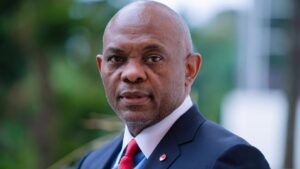
Lagos targets 24hr electricity with passage of Electricity law
By Sodiq Adelakun and Esther Adebayo
Lagos State is set to achieve uninterrupted power supply across the state with the signing into law of the Lagos Electricity Bill 2024 signed by Lagos State Governor, Mr. Babajide Sanwo-Olu, on Tuesday, December 3, 2024.
This significant move follows a constitutional amendment signed by former President Muhammadu Buhari, which allowed state governments to generate and transmit their own electricity.
Several states, including Ekiti, Ondo, and Oyo, have already taken steps to leverage this change to address their energy challenges.
Now, Lagos joins these states in a bid to transform its energy landscape. The comprehensive legislation, signed into law by Governor Babajide Sanwo-Olu on December 3, 2024, aims to tackle long-standing challenges in the energy sector and lay a robust foundation for economic growth, industrial development, and an improved quality of life for Lagosians.
Governor Sanwo-Olu stated that the new law would be pivotal in ensuring Lagos becomes a 24-hour economy, eliminating power outages and enabling businesses and households to benefit from a consistent and affordable power supply.
“This law marks a transformative moment for Lagos. We are laying the foundation for a future where power outages are a thing of the past, and every household and business can rely on a steady supply of electricity,” he said.
He described the legislation as a “paradigm shift” in addressing the city’s long-standing power challenges, adding, “The new law will make Lagos a 24-hour economy where businesses can operate seamlessly, fostering growth, innovation, and global competitiveness.”
The Lagos Electricity Bill 2024 has several key objectives, including the establishment of a technically sound, financially viable, and well-regulated electricity market in the state.
It aims to ensure access to affordable, reliable, and sustainable electricity for all citizens, promote diverse energy sources, including renewable energy, and encourage energy efficiency.
The law will also foster investment, competition, and innovation in the electricity sector, while electrifying underserved areas to contribute to the sustainable development of Lagos State.
In addition to setting ambitious energy goals, the law establishes crucial institutions such as the Lagos State Electricity Regulatory Commission, the Lagos Independent System Operator (ISO), the Lagos State Electrification Agency, and a Power Enforcement Unit.
It also creates special funds, including the Electrification Funds and the Host Community Development Trust Fund, to support the state’s energy projects.
The State Commissioner for Energy and Mineral Resources, Abiodun Ogunleye, noted that the new law decentralises the electricity market, which will create opportunities for private sector players and foster the use of renewable energy.
“This will boost our energy infrastructure, create jobs, and usher in a new era of clean, reliable, and sustainable power supply in Lagos,” he said.
The law also introduces provisions for regulatory sandboxes, allowing for the testing of emerging technologies in the energy sector, further fostering innovation. Ogunleye highlighted that the 2024 Lagos State Electricity Law would make the state a model for energy innovation in Nigeria.
Additionally, Governor Sanwo-Olu emphasised that the new legislation would enhance security by ensuring a reliable power supply, even at night.
“This reform will contribute to a safer Lagos, where citizens can confidently go about their activities without the fear of power outages or security threats,” he explained.
The governor expressed his appreciation to the state lawmakers for their diligence in passing the bill, calling it a victory for collaboration and good governance. He added that the law was a crucial step towards realising Lagos’ vision of becoming a global economic hub powered by sustainable and uninterrupted electricity.
In his message to Lagosians, Governor Sanwo-Olu assured the public that his administration remains committed to improving the state’s energy infrastructure, which he described as the backbone of Lagos’ economy.




